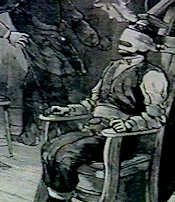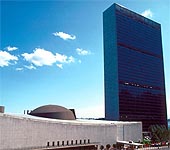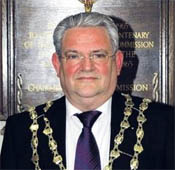 Last week the Bureau of Industry and Security (“BIS”) adopted, with a few minor revisions, a rule that it had proposed in August 2009 imposing new controls on execution equipment, torture devices, law enforcement restraint devices and law enforcement striking weapons. This blog reported on the proposed rules here.
Last week the Bureau of Industry and Security (“BIS”) adopted, with a few minor revisions, a rule that it had proposed in August 2009 imposing new controls on execution equipment, torture devices, law enforcement restraint devices and law enforcement striking weapons. This blog reported on the proposed rules here.
One of the most significant changes between the proposed rule and the final rule is its treatment of shock sleeves, stun cuffs, and shock belts. The proposed rule would have added shock sleeves to ECCN 0A983, which covers torture implements, stun cuffs to ECCN 0A985, which covers discharge devices, and did not address shock belts at all. In the final rule, all three devices are classified as ECCN 0A982, which covers law enforcement restraint devices. BIS apparently decided that shock sleeves have some legitimate law enforcement use and therefore should be classified under ECCN 0A982, which under EAR § 742.7, has a licensing policy under which license applications are “generally … considered favorably on a case-by-case basis unless there is civil disorder in the country.” Torture implements under ECCN 0A983, on the other hand, are subject to a general policy of denial under EAR § 742.11.
The final rule also added a clarifying note to ECCN 0A982 which covers law enforcement restraint devices. The note points out that the ECCN doesn’t cover child automobile safety seats or seat belts. Although an unobjectionable clarification, somebody was really thinking outside the box when thinking that child seats might be seen as law enforcement restraint devices. Frankly, at least if 4-year-olds are to be believed, those seats would be more adequately classified as specially designed implements of torture.
One commenter on the proposed rule stated that ECCN 0A981, which covers equipment designed for the execution of human beings, should also cover parts for such equipment. BIS wisely decided to reject this suggestion stating,
Identifying parts that may be appropriate for an export license requirement without imposing an export license requirement on general parts that, although usable in equipment
designed for the execution of human beings, have many other uses as well would require both research by BIS and public comment.
That seems just a long way of saying that BIS isn’t interested in getting involved in licensing the export of ropes.

 Posted by
Posted by  Category:
Category: 

 The latest monthly
The latest monthly 
 It has begun. A
It has begun. A  The website for the Directorate of Defense Trade Controls (“DDTC”) recently
The website for the Directorate of Defense Trade Controls (“DDTC”) recently 

